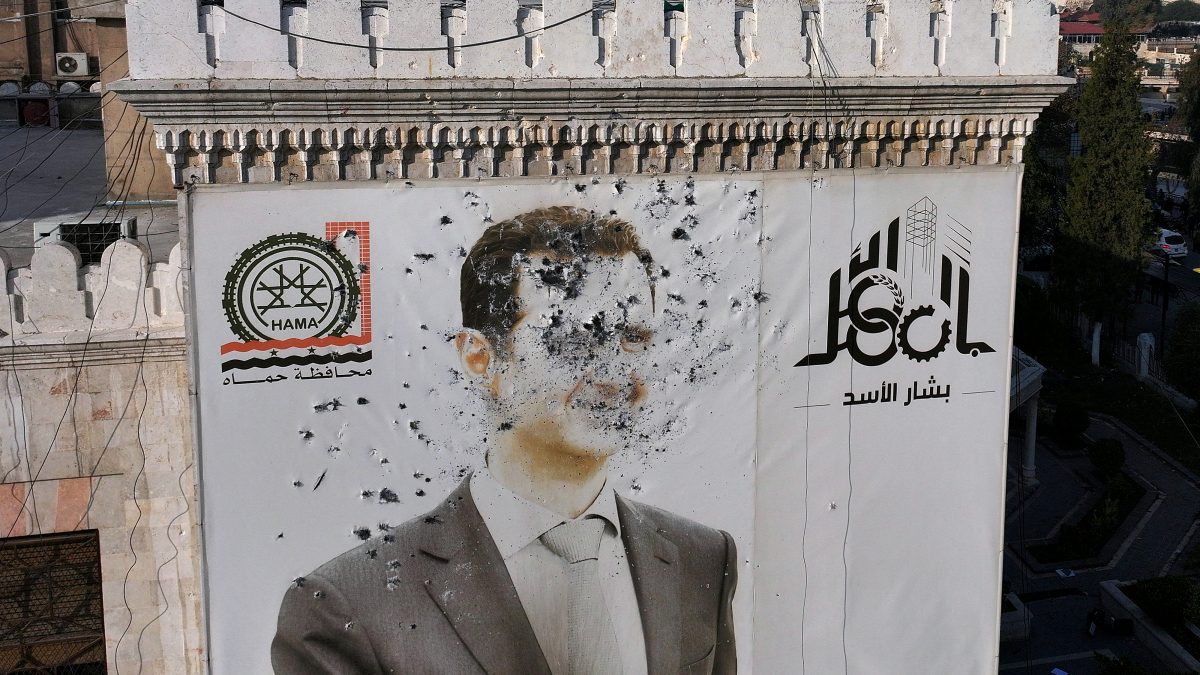Syrian opposition forces claimed on Friday that they have taken over the city of Daraa clutching control over yet another key Syrian city. Interestingly, Daraa was the city where the Syrian uprising first started in 2011. With the capturing of Aleppo, Hama, Homs and Daraa, the biggest question which many are pondering is can the insurgents take over Damascus, the Syrian capital.
The rebels are now battling Syrian President Bashar al-Assad’s forces from two directions; the north and the south, in an attempt to close in on Damascus. While the Syrian defence ministry is yet to confirm the capture of Damaa, the insurgents released a statement confirming their new conquest.
“Our forces have taken full control of the entire city of Daraa and have started combing through its neighbourhoods and securing its institutions and government offices,” local rebel fighters known as the Southern Operations Room said in a statement late Friday.
It is pertinent to note that the southern factions are different from factions in the north led by the Islamist rebel group Hayat Tahrir al-Sham (HTS), who have already taken two major cities during their offensive. However, both groups have the same goal of toppling the regime. So will Assad be able to save his seat or will Syria witness the rise of the new regime?
Can rebels take over Damascus?
As of now, both the troops have taken over the northwestern and southwestern cities of Syria. But the question of Damascus started to pop up after reports emerged that HTS and its allies had reportedly reached the outskirts of the city of Homs, which is only 100 miles away from the Syrian capital.
As of now, Assad’s military has showcased negligible resistance. Most of them are poorly trained officers who have been pressed into service, with predictable results.
“The question is whether they can continue the momentum and go to Damascus. It looks like a huge groundswell of support for what’s happening and that reveals the brittle nature of the regime,” Sanam Vakil, the director of the Middle East and North Africa programme at London’s Chatham House told The Guardian.
Impact Shorts
More ShortsCapturing of Homs raised fears about Damascus since it is the largest Syrian province which borders Lebanon, Iraq and Jordan. It is pertinent to note that part of Homs city was already controlled by insurgents until a bloody siege in 2014. The city is touted as the “gateway to Damascus” as well as Syria’s coastal provinces of Latakia and Tartus, both bastions of regime loyalists.
While it is still unclear if the rebels can take Damascus as swiftly as they took over Aleppo, the success of any such operation could expose the hollow nature of Assad’s defence forces. Meanwhile, deep divisions among rebel factions can also cause hindrances.
Keeping all the recent developments in mind, Assad is already withdrawing his forces from Syria’s east to reinforce those around Damascus. During this process, however, he is ceding key cities such as Deir ez-Zor to Kurdish opposition factions.
“There is a clear level of desperation and they are concentrating defence around strongholds. The big question now is what Iran and Russia do,” Broderick McDonald, an associate fellow at King’s College London told The Guardian.
What it means for the greater region of West Asia
In a recent joint statement over the insurgency, foreign ministers of Iran, Iraq, and Syria said that the advance of opposition forces in Syria poses “a serious danger to the three countries, threatens the security of their peoples and the region as a whole.” The diplomats released the statement following their meeting in Baghdad on Friday.
The three nations went on to describe the Syrian rebel forces as “terrorists,” emphasising that there is “a need for collective action to confront it.” Meanwhile, Israel has also instructed its forces to “maintain a high level of preparedness and to continuously monitor the developments,” in Syria as rebels advance.
“The Israeli military is prepared for any scenario and is determined to protect the citizens of Israel and protect Israel’s security interests at all times,” the country’s military said in a statement on Friday. Hence, these concerns indicate how other West Asian nations are also observing developments in Syria very closely.
With inputs from agencies.
)